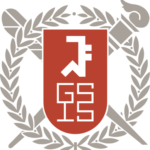Media News
Media News
Interview with Kavita Ramdas: Post-“Kim Jiyoung, Born 1982” South Korea Will Hold Keys to Resolving the Care Crisis and Gender Inequality
Interviews

On October 28, Kavita R. Ramdas, a global woman activist visited at Seoul National University(SNU). She joined the Open Society Foundation in August last year as the director of the Women’s Rights program and sponsored the Center for Transnational Migration and Social Inclusion under SNU in terms of working for an activity to regain rights to women’s bodies, care issue and various women’s movements.
She thinks Korea can lead the care issue through working with Korean sociologists and economists. She shared the thoughts by saying “As seen in ‘Kim Jiyoung, Born 1982’, gender equality, aging and low birth rates cannot be solved without solving the care problems.
Whenever I meet Korean women, I see them struggling with the problems of caring for their children and old parents. This is a crisis, and a crisis is an opportunity. The solution that Korea has found can be extended to the world.”
She believes that gender conflict can eventually find a solution to understanding the other person. “If you accept this, you will soon realize that men are not women who hate or hostile, but who we are born,” she added. And she left the last message to the youth “I want you to keep in mind that the most necessary tool for men and women together to create a better world is tools with compassion.”
Interview with Kavita Ramdas: Post-“Kim Jiyoung, Born 1982” South Korea Will Hold Keys to Resolving the Care Crisis and Gender Inequality
Interviews

On October 28, Kavita R. Ramdas, a global woman activist visited at Seoul National University(SNU). She joined the Open Society Foundation in August last year as the director of the Women’s Rights program and sponsored the Center for Transnational Migration and Social Inclusion under SNU in terms of working for an activity to regain rights to women’s bodies, care issue and various women’s movements.
She thinks Korea can lead the care issue through working with Korean sociologists and economists. She shared the thoughts by saying “As seen in ‘Kim Jiyoung, Born 1982’, gender equality, aging and low birth rates cannot be solved without solving the care problems.
Whenever I meet Korean women, I see them struggling with the problems of caring for their children and old parents. This is a crisis, and a crisis is an opportunity. The solution that Korea has found can be extended to the world.”
She believes that gender conflict can eventually find a solution to understanding the other person. “If you accept this, you will soon realize that men are not women who hate or hostile, but who we are born,” she added. And she left the last message to the youth “I want you to keep in mind that the most necessary tool for men and women together to create a better world is tools with compassion.”




